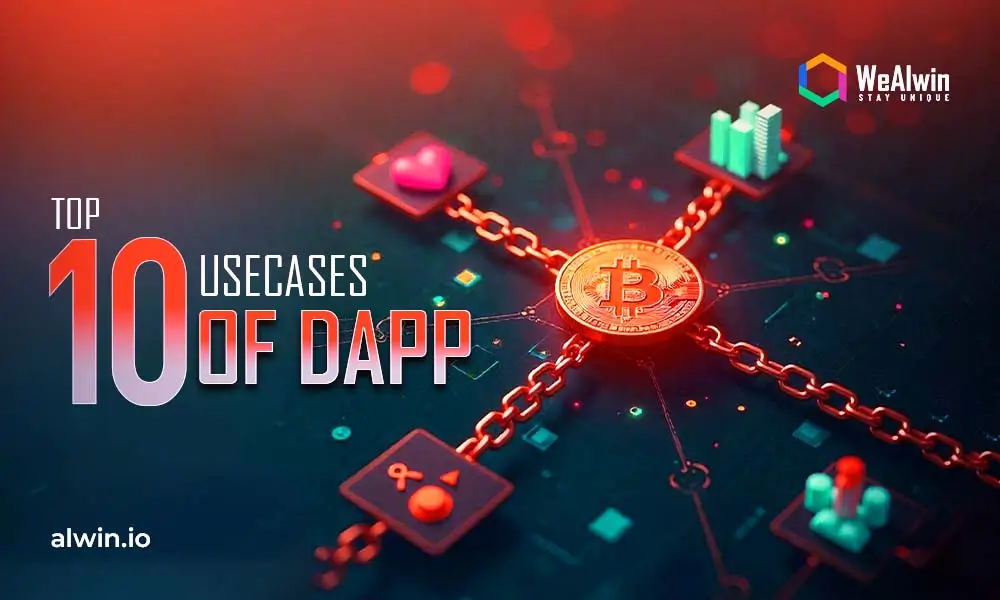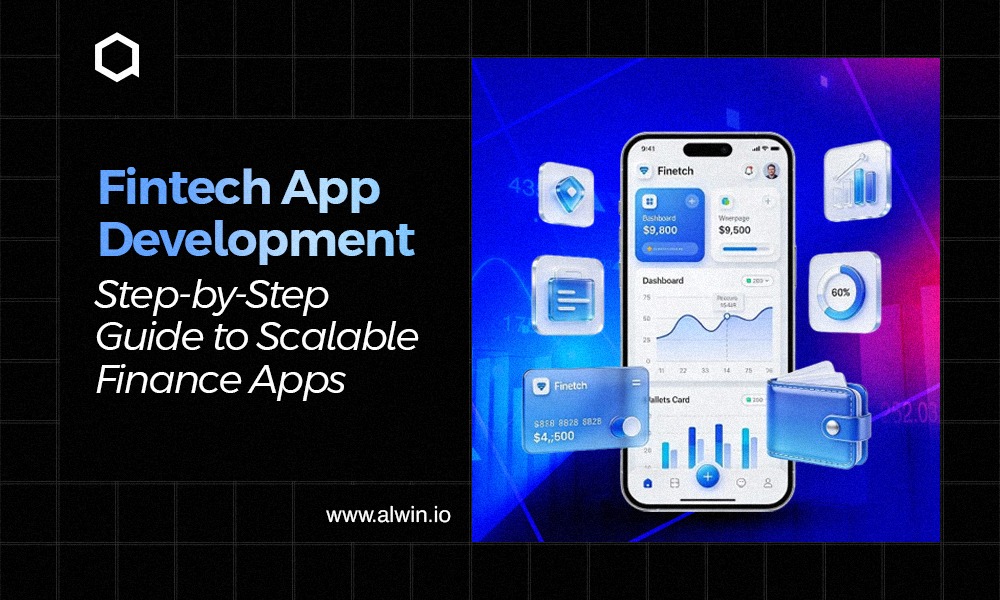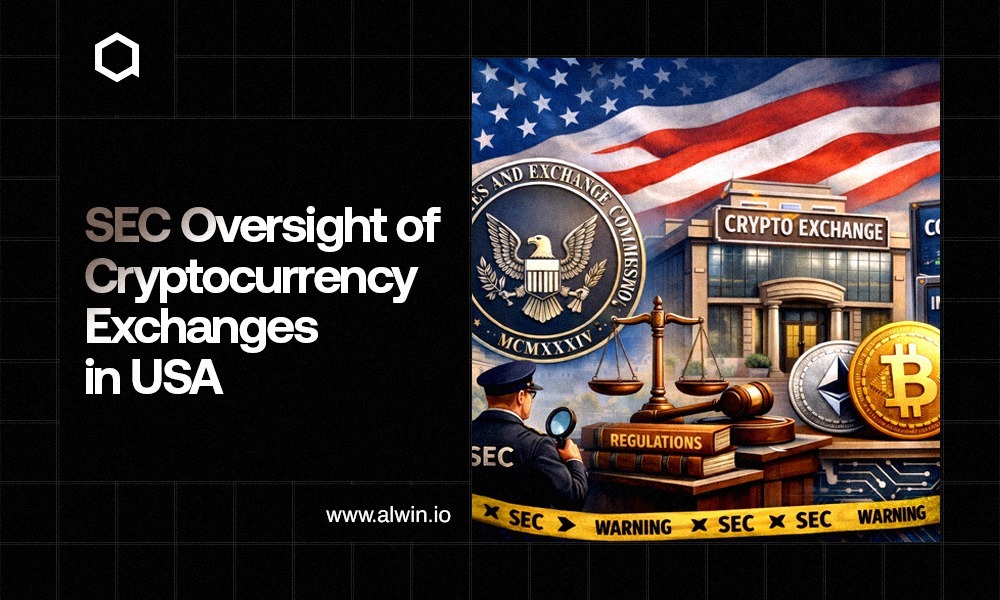Decentralized applications (dApps) are set to improve various sectors by providing efficiency and transparency. These applications utilize blockchain technology to automate processes, reducing the time and effort spent on manual tasks, while also lowering transaction and operational costs by minimizing intermediaries. With easily traceable transactions on the blockchain, dApps promote trust and accountability among all parties involved, leading to better user experiences through improved interfaces and faster transaction times.
dApps have applications across industries, including finance, where they streamline payments and reduce fraud; supply chain management, which allows for real-time tracking of goods for better inventory management; healthcare, which secures patient data and improves access to medical records; and gaming, enabling players to truly own in-game assets. Additionally, DApps are scalable, adapting to growing business needs without major infrastructure changes, and they provide strong security features that protect sensitive data and transactions from unauthorized access.
Moreover, dApps can interact with other blockchain networks, expanding their functionality and reach. Many are also designed to meet regulatory standards, allowing businesses to operate within legal frameworks. By adopting DApps, organizations can position themselves as leaders in technology, fostering growth across various sectors.
What is a Decentralized Application (dApp)?
DApps are software applications that operate on a distributed network, unlike traditional applications that are hosted on a single network with a central authority. They are not controlled by any single entity, functioning instead in a decentralized manner through blockchain or peer-to-peer technology. While DApps resemble conventional applications, users may not easily notice the difference. However, DApps provide enhanced features and benefits that can deliver greater value compared to centralized applications, making them an attractive option for businesses looking to improve and advance their processes.
Decentralized applications (DApps) function similarly to everyday applications but operate on a blockchain network rather than using a single server. Just as businesses utilize platforms like Uber for transportation or Spotify for music access, DApps provide a gateway to blockchain-based solutions.
Blockchain technology is known for eliminating intermediaries, increasing transparency, and giving users greater control over their information and assets. DApps offer businesses the advantage of decentralized control at the application level, serving as the user interface for this powerful technology. By integrating DApps into their operations, organizations can tap into the benefits of blockchain to improve efficiency, security, and user engagement.
Top 10 DApp Use Cases
Decentralized Finance (DeFi)
DeFi DApps offer financial services without traditional intermediaries like banks. Users can lend, borrow, trade, and earn interest on their assets directly through smart contracts. This gives access to financial services for people who may not have access to traditional banking, promoting financial inclusion. DeFi also allows for automated trading strategies and yield farming, helping users maximize their returns.
Supply Chain Management
DApps can improve supply chain transparency and traceability by recording every transaction on the blockchain. Businesses can track products from production to delivery, helping maintain quality and compliance with regulations. This visibility helps identify inefficiencies, reduces fraud, and builds trust among stakeholders as all parties can access the same information in real time.
Healthcare
DApps can securely manage patient records and give individuals control over their health data. Patients can share their medical histories with healthcare providers when needed while maintaining privacy. This enhances the process of data sharing and improves data security as information is stored on the blockchain, reducing risks to patient information.
Gaming
DApps in gaming allow players to own, trade, and sell in-game assets such as skins, characters, or virtual real estate using blockchain technology. This ownership model creates a new economy where players can earn real value from their gameplay. dApp game development supports decentralized gaming platforms, enabling player-driven governance, where the community has input in game development and updates.
Real Estate
DApps simplifies real estate transactions by using smart contracts to automate processes. They enable fractional ownership, allowing multiple investors to own parts of a property. This transparency and efficiency cut costs and reduce time spent on transactions, making real estate investments more accessible.
Voting Systems
DApps can modernize voting by providing a secure and transparent method for casting and counting votes. Using blockchain technology, votes are recorded in a tamper-proof manner, protecting the integrity of elections. This builds trust in the voting process, reduces fraud, and makes voting more accessible.
Digital Identity
DApps allow users to manage their digital identities securely, without relying on central authorities. Users control their identity information and decide when and how to share it, improving privacy. This approach reduces identity theft risks and puts individuals in control of their data.
Content Sharing
Content creators can distribute their work directly to consumers through DApps, cutting out intermediaries like publishers. This leads to fairer compensation models, with creators earning more from their work. Blockchain technology also helps transparently authenticate content and track royalties.
Insurance
DApps can automate claims processing using smart contracts that execute when predefined conditions are met. This reduces the time spent on claim verification, leading to faster payouts for policyholders. Blockchain transparency also helps reduce fraud and builds trust between insurers and customers.
Charity and Donations
DApps increase transparency in charitable donations by tracking funds on the blockchain in real-time. Donors can follow how their contributions are used, boosting confidence in the organizations they support. This transparency can encourage more people to donate, knowing their money is being used effectively.
Why is WeAlwin the Right Choice for Your dApp Needs?
WeAlwin is a top dApp development company, delivering a variety of dApp development services to clients globally. With over 50+ successful blockchain projects across various networks, we have proven expertise in meeting diverse project requirements. Our team of 75+ experienced blockchain developers has been driving advancements in the blockchain industry for years. If you have an idea for DApp development, reach out to our experts at WeAlwin and turn your vision into reality in the digital world.
Wrapping up
Adopting new technology can position your business as a leader in your industry. Decentralized applications (dApps) are gaining popularity across sectors and have the potential to replace traditional applications over time. By incorporating dApps into your business model, you can drive growth and stay ahead of the competition. Work with us to develop a custom dApp for your industry, and our experts will provide the right solution for your business needs.



